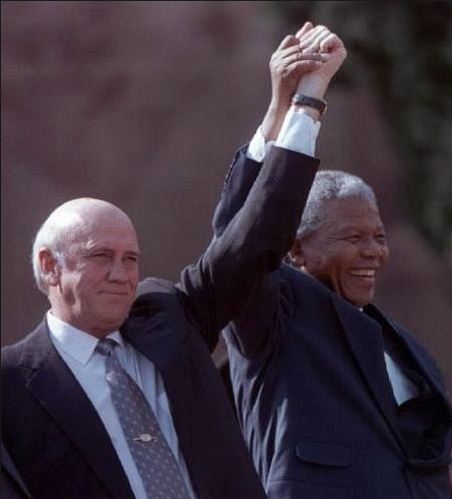In 1976, when thousands of black children in Soweto, a black township outside Johannesburg, demonstrated against the Afrikaans language requirement for black African students, the police opened fire with tear gas and bullets. The protests and government crackdowns that followed, combined with a national economic recession, drew more international attention to South Africa and shattered all illusions that apartheid had brought peace or prosperity to the nation. The United Nations General Assembly had denounced apartheid in 1973, and in 1976 the UN Security Council voted to impose a mandatory embargo on the sale of arms to South Africa. In 1985, the United Kingdom and United States imposed economic sanctions on the country.
Under pressure from the international community, the National Party government of Pieter Botha sought to institute some reforms, including abolition of the pass laws and the ban on interracial sex and marriage. The reforms fell short of any substantive change, however, and by 1989 Botha was pressured to step aside in favor of F.W. de Klerk. De Klerk’s government subsequently repealed the Population Registration Act, as well as most of the other legislation that formed the legal basis for apartheid. A new constitution, which enfranchised blacks and other racial groups, took effect in 1994, and elections that year led to a coalition government with a nonwhite majority, marking the official end of the apartheid system.
A&E Television Networks LLC (2015). Apartheid. Geraadpleegd op 28-10-2015 van http://www.history.com/topics/apartheid
